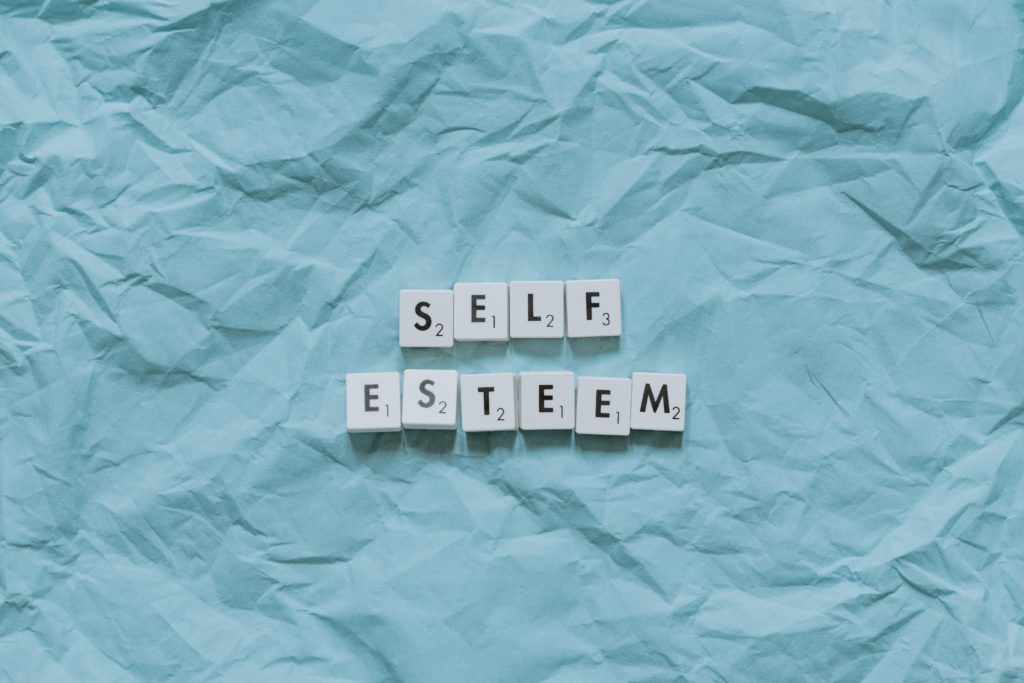What is Self-Esteem?
 Self-esteem is defined as a person’s overall sense of his or her value or worth. In other words, it is your opinion of yourself. Many things can influence someone’s self-esteem. Some factors include life experiences, age, health, and personality.
Self-esteem is defined as a person’s overall sense of his or her value or worth. In other words, it is your opinion of yourself. Many things can influence someone’s self-esteem. Some factors include life experiences, age, health, and personality.
No matter an individual’s self-esteem, everyone may occasionally lack confidence depending on their current life circumstance. The difference in someone with low self-esteem though is they are usually unhappy or unsatisfied about their life almost all of the time. As you continue reading we will focus on aspects of self-esteem, low and high, and how self-esteem and addiction are connected.
What are Some Aspects of Self-Esteem?
As stated above your self-esteem can fluctuate from time to time depending on your age, environment, personality, genetics, and the people you hang around. Some characteristics can be seen in an individual to determine whether they have high or low self-esteem. An individual with high self-esteem
- Speaks up, tells others their opinions, and shares their wants and needs with others
- Appreciate themselves and other people
- Enjoy growing as a person and finding fulfillment and meaning in their lives
- Can dig deep within themselves and be creative
- Make their own decisions
- Accept other people the way they are while pushing them toward greater confidence and a more positive direction
- Can easily concentrate on solving problems in their lives
- Have loving and respectful relationships
- Act assertively without experiencing any guilt
- Avoid dwelling on the past and focus on the present moment
- Accept challenges and take risks to grow and learn from mistakes when they fail
- Handle criticism without taking it personally, with the knowledge that they are learning and growing and their worth is not dependent on the opinion of others
Individuals with low self-esteem tend to:
- People please
- Become easily angered or irritated
- Feel as if their opinions are not important
- Hate themselves
- Think whatever they do is never good enough
- Become highly sensitive to other’s opinions
- Feel as if the world does not feel safe
- Doubt every decision
- Regularly experience the emotions of sadness and worthlessness
- Find it hard keeping relationships
- Avoid risk-taking or trying new things
- Engage in addictive avoidance behaviors
- Lack in confidence
- Find it difficult creating and keeping boundaries
- Give more attention to their weakness
- Struggle to say no
- Hold a pessimistic outlook on life
- Frequently experience negative emotions, such as fear, anxiety, or depression
- Compare themselves to others and often come in second best.
Individuals with high self-esteem also react differently to certain situations compared to those with low self-esteem. For example, let’s say two individuals went to take a driver’s test. Individual 1 has higher self-esteem than individual 2. They both ended up failing their driver’s test. Of course, it is upsetting to fail any kind of test but how you react to failure is dependent on your self-esteem.
Individual 1 will attribute them failing their driver’s test to not practicing enough or simply having an “off” day. Individual 1 will also think critically about why they failed and try to improve it. What individual 1 would not do compared to individual 2 is conclude that they are stupid and that they will probably fail in future tests. Individual 2 is also more likely to have a pity party or give up.
How Does Self-Esteem Affect Addiction?
Not everyone with low self-esteem self-medicates with drugs but self-esteem and substance abuse do correlate. People who suffer from low self-esteem commonly experience symptoms of anxiety and/or depression. Due to this, they are more likely to turn to drugs and alcohol to mask their pain and insecurities.
Substance abuse is the excessive use of psychoactive drugs such as illegal drugs or alcohol. For people with low self-esteem, drinking alcohol or taking drugs is a way to appear more confident than they are. Turning to drugs and alcohol also allows individuals with low self-esteem to numb their pain and escape from reality.
The feelings obtained from drinking alcohol or doing drugs are only temporary. Due to this, it is very common to become addicted and dependent on these substances. Your brain and body have become used to the changes the substances bring. You then experience tolerance which means you no longer respond to your drug of choice the way you did the first time you did. So now you need more of the drug to experience the euphoric feeling.
Substance abuse will never be a permanent solution to relieve pain and suffering or improve self-esteem. Substance abuse has negative health consequences mentally, physically, socially, and emotionally. It will also further affect a person’s self-esteem and self-confidence. Going down this path may seem like an impossible situation to get help from but self-esteem and addiction recovery is possible with help from the right medical professionals and addiction specialists.
How to Build Self-Esteem During Addiction Recovery
 If you or a loved one is going through addiction recovery it is important to also work on your self-esteem. Improving your self-esteem will improve your self-confidence and you will have a better sense of self-worth. Higher self-esteem will also prevent you from relapsing.
If you or a loved one is going through addiction recovery it is important to also work on your self-esteem. Improving your self-esteem will improve your self-confidence and you will have a better sense of self-worth. Higher self-esteem will also prevent you from relapsing.
There are steps you can take to rebuild your self-esteem no matter where you are in your recovery. Below you will find 5 tips on how to rebuild and improve your self-esteem during addiction recovery:
1. Set realistic expectations
When starting addiction recovery it is important to set small, reachable goals. Setting too high of a goal or expectation may make you feel like a failure if you are unable to reach them. This can impede your recovery process. So start small and work up to bigger steps when you are in a comfortable place to do so.
2. Self-forgiveness
It is important to take responsibility for your actions but after you have done so do not continue to beat yourself up for what is now in your past. Do not let your past define your future. Take a look at how far you have come and allow yourself to be forgiven. Doing so will help you move forward to a brighter future and focus on recovering.
3. Write yourself affirmations
Affirmations are simple positive statements you would say to yourself. An example of some affirmations are “I am beautiful” or “I am worthy”. You could put sticky notes of these affirmations on your bathroom mirror to say to yourself daily. This may seem very simple and even if you may not feel worthy or beautiful, saying these affirmations to yourself daily will improve your attitude and how you view yourself.
4. Think positively
If you have been suffering from low self-esteem for some time you are probably used to letting negative thoughts crowd your mind. Saying think positively may sound easy for someone to say but it is not always easy for some people to do. The power of positive thinking can make all the difference in a day and change your life long-term. By seeing a situation in a positive way rather than negative you are able to see things from a different perspective. While in addiction recovery maintaining a positive attitude will help motivate you and others to not give up.
5. Stop comparing yourself to others
it is very easy to compare yourself to others, especially when you are on social media. While you’re on social media remember that many people may display a polished and perfect appearance that is false. The only person you should be comparing yourself to is yourself. Write down things you like about yourself and focus on your strengths, talents, and accomplishments.
Start the Journey Towards a Better Life
Rebuilding your life after addiction is possible. Practicing the right behavior can help you improve your self-esteem and conquer your addiction head-on. It can be easy to think negatively but having a positive mindset can help you avoid relapsing. For the right treatment plan and resources to help treat your self-esteem and addiction contact Lifetime Recovery Center today for more information.



